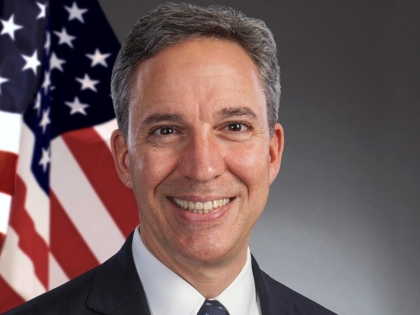
Senator Martins Warns Residents About Ongoing Phone Scams
February 5, 2016
-
ISSUE:
- Consumer Protection
Senator Jack M. Martins (R-7th Senate District) is advising residents that the New York State Attorney General’s Office has issued a consumer alert in response to a rise in telephone scammers claiming to be Internal Revenue Service Officials to dupe residents into handing over their money.
“Scammers will use any method they can to steal from unsuspecting individuals, including posing as governmental officials to threaten and bully victims into giving up their hard earned money. The good news is that by taking a few simple precautions, residents can protect themselves from becoming a victim of fraud,” said Senator Martins.
According to the New York State Attorney General’s Office, the schemes generally involve a scammer posing as a governmental official calling a victim and telling them they owe taxes which are past due. The caller then threatens the victim with immediate arrest if they do not pay the phony debt that day through a money transfer using a Western Union MoneyGram or Green Dot Card Money Card. The scammers often use technology that tricks the victim’s Caller ID into displaying “Internal Revenue Service” or the Internal Revenue Service’s phone number. These scammers have also been known to request personal information, such as a social security number, to steal the victim’s identity.
Senator Martins shared the following tips from the New York State Attorney General’s Office:
The IRS and Legitimate Government Agencies Never Demand Payment by Phone
If you owe money, you will receive a legitimate notice in writing that identifies the agency and the reason you owe money. Legitimate government organizations will never threaten arrest or deportation for failure to pay a debt, and will never insist that consumers pay a debt only via a pre-paid credit card.
Think of the Telephone as a “One Way Street”
It’s okay to give out information over the phone if you made the call to a number you know and trust (such as your own bank). However, never give out personal information when you receive an unsolicited call. If you receive a call soliciting personal information, just hang up the phone, no matter what the caller ID says. If the caller says he’s from your bank and is checking on possible unauthorized withdrawals from your account, hang up the phone and then call your bank. If it was your bank that was trying to call, then it will be happy to confirm the call and will often provide requests to you in writing. If your bank says it wasn’t trying to reach you, that means the caller you hung up on was a scammer.
Beware If A Caller Asks to Keep a Conversation a Secret
A legitimate caller will never request that a conversation remain a secret, and you should immediately be suspicious. Whether the caller claims to be from the government, a bank, or a family member, requests for confidentiality should raise a red flag.
Just Say No!
You don’t have to be polite when you receive unsolicited phone calls. The safest thing to do is to say “no” and hang up. Legitimate callers will typically also provide requests in writing. It is better to be guarded than to fall victim.
Residents can report these scam calls or other potential instances of fraud to the New York State Attorney General’s Office at 800-771-7755 or over the Internet at www.ag.ny.gov.
Share this Article or Press Release
Newsroom
Go to NewsroomSenator Martins' Storm Resource Center
January 26, 2015

From the Desk of Senator Jack M. Martins
January 26, 2015